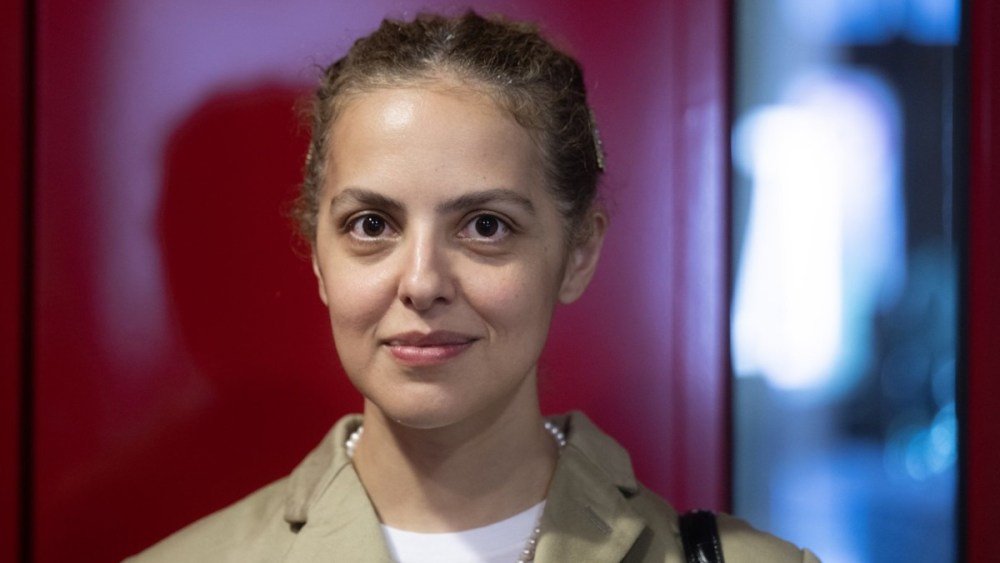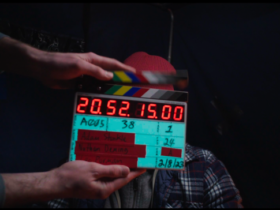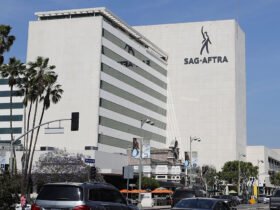Attending the Karlovy Vary Film Festival this week, the Georgian director Dea Kulumbegashvili, whose sophomore feature “April” received the Special Jury Prize at the 2024 Venice Film Festival, spoke about no longer being able to make films in her home country following the release of her acclaimed drama about a doctor who performs secret abortions in her village.
“I want to stress this in interviews: there is no way to make films in Georgia at the moment,” she tells Variety. “It’s not only me. I want this sentiment to be shared because we are a very small country and mostly nobody cares, but actors are facing years in jail for participating in protests without anything proven against them. There is no space in Georgia to make films. It’s impossible.”
Kulumbegashvili rose to prominence with two acclaimed short films (“Invisible Spaces,” 2014, and “Lethe,” 2016). “Beginning,” her feature debut about a missionary in the aftermath of the burning of a church in a remote Georgian village, won four awards at San Sebastian, where it also caught the attention of then jury president Luca Guadagnino, who went on to produce her sophomore effort.
The Georgian director is in Czech spa town Karlovy Vary to present “April,” and as a mentor for Future Frames, a program that boosts 10 up-and-coming European filmmakers organized by European Film Promotion and the festival.
Kulumbegashvili sat down with Variety following a private masterclass where she gave insights to participants on the current realities of working as a director in an ever-challenging market, including her difficulty to make films at home. Following the ban in Georgia of “April,” Kulumbegashvili relocated to Germany, where she is currently developing a new project.
“It’s interesting to understand that, right now, being a Georgian director doesn’t necessarily mean making films in Georgia,” she adds. “We’re losing our home, and that questioning of our identity is becoming even more existential somehow. We do carry this anxiety and those questions with us as directors, but maybe there is also something good to it because, through this forced exile, I am confronting my own meditations as a director.”
The filmmaker says she is “grateful” to be a mentor at Future Frames, reiterating the importance of creating a sense of community in an industry that so often works within a sense of aloneness. “I’m very humbled because filmmaking is a profession that deals with being alone and sometimes you feel very disconnected. I still deal with not knowing a lot and I have limited knowledge, but I want to be useful, so I’m grateful to be here.”
The experience is even more special to the director coming from a small European country, given the festival’s push for continental collaboration. “I come from Eastern Europe and we share this history of a Soviet past, which is something we are still dealing with now,” she highlights. “[South-east Europe] is collapsing right now, with what is happening in Ukraine, as well as the huge challenge we have in Georgia, which is becoming increasingly authoritarian.”
“[Czech Republic] has a history of resistance and I can see with younger directors how much they struggle because freedom of expression is becoming a problem not only in Eastern Europe but in the United States and the world,” continues the “Beginning” director. “Money is less and less and becoming more restricted because of the rise of the right-wing, which historically has always had a problem with culture and artists.”
‘April,’ courtesy of Metrograph Pictures
Another dramatic shift for Kulumbegashvili is her move into motherhood, with the director recently giving birth to her first child, and returning to the studio when her baby was only three weeks. The filmmaker feels it is “vital” to speak about what happens to female creatives in the industry when they are pregnant and then become mothers. “We talk about how brave women who go back to work while being nine months pregnant are, but is that good for the mother and the child?”
It is then a further challenge when the child is born. “The budget of a film will never accommodate childcare,” she says, adding that what “really helped” her during the making of “April” was when the team brought in women producers.
“This is when we started to find a way to handle things, because it was not easy for anyone involved to understand how to deal with it,” she continues. “I have heard as a woman that it was my decision to have a child, and, yes, it was, and also my decision to make a film. But should I be the only one responsible for a system that does not allow for any social support to women at all? Then we wonder why there are so few of us making films.”
Kulumbegashvili reiterates she is “very determined to keep making films.” “I will be going on set with my kid and make sure everybody will have the space to bring their children. I want to create possibilities for mothers,” she concludes.
Future Frames is supported by Creative Europe – the MEDIA Program of the European Union, and presented in cooperation with KVFF and its partner Allwyn. The initiative will eventually select one director for an Allwyn scholarship and professional development trip to Los Angeles.









Leave a Reply